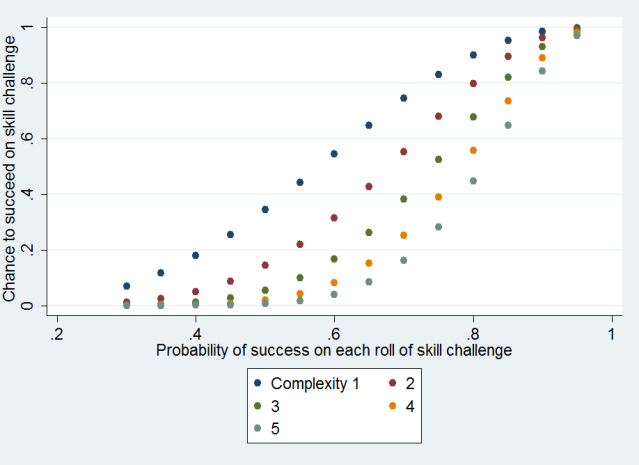Mmm, I don't know what you mean here.
This calculation takes into account the success chance of a roll.
It doesn't account for skill bonuses or DCs.
You mean that it is rare that a party has always the same chance for each roll accross a SC?
What I mean is there is actually a lot of variance each roll for a skill challenge.
For example, let's say perception and athletics are both high difficulty skills for a challenge, so they have the same DC. Assuming both fighter and ranger have the same base good stats in their respective skills, the ranger might have a +7 bonus advantage over the fighter (+3 for skill focus, -2 to the fighter for his ACP if he's in plate, or -4 if he's in plate,heavy shield).
Further, if players choose different skills each round, their bonus may once again shift.
Finally, and this one is the hardest one to compensate for mathematically I have found, is there are a huge number of powers that provide bonuses to skill rolls. For example, my party's wizard has a utility power that lets him reroll an arcana check once per encounter. That is actually a huge bonus on a single roll for for a skill challenge.
So when the model simply assumes everyone in the party has a 65% chance to make their rolls for a round, that is really underestimating the complexity of the system.



